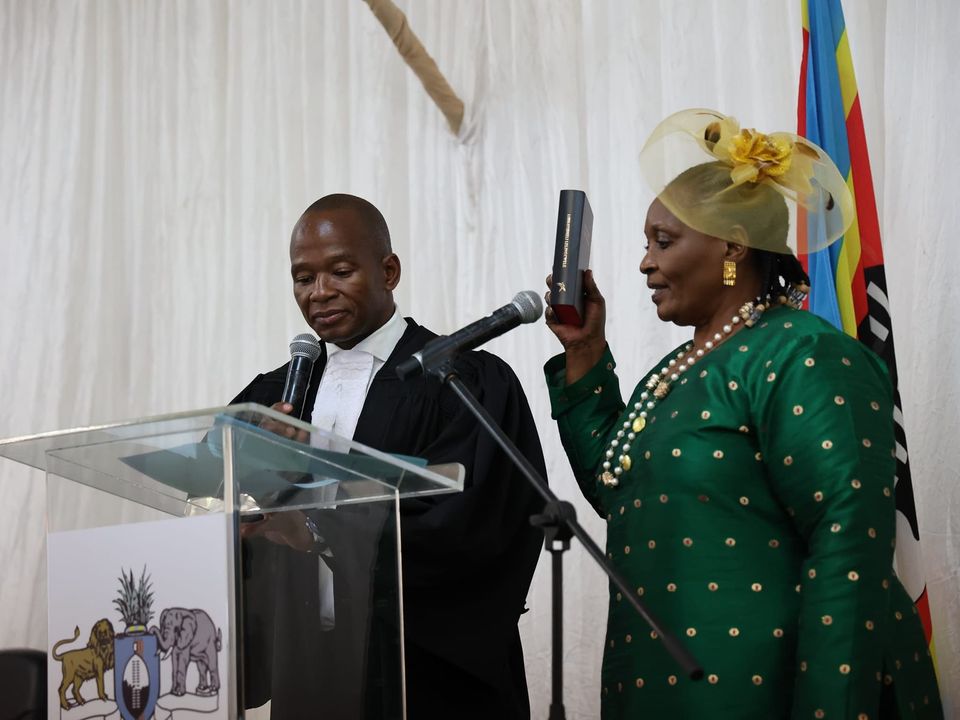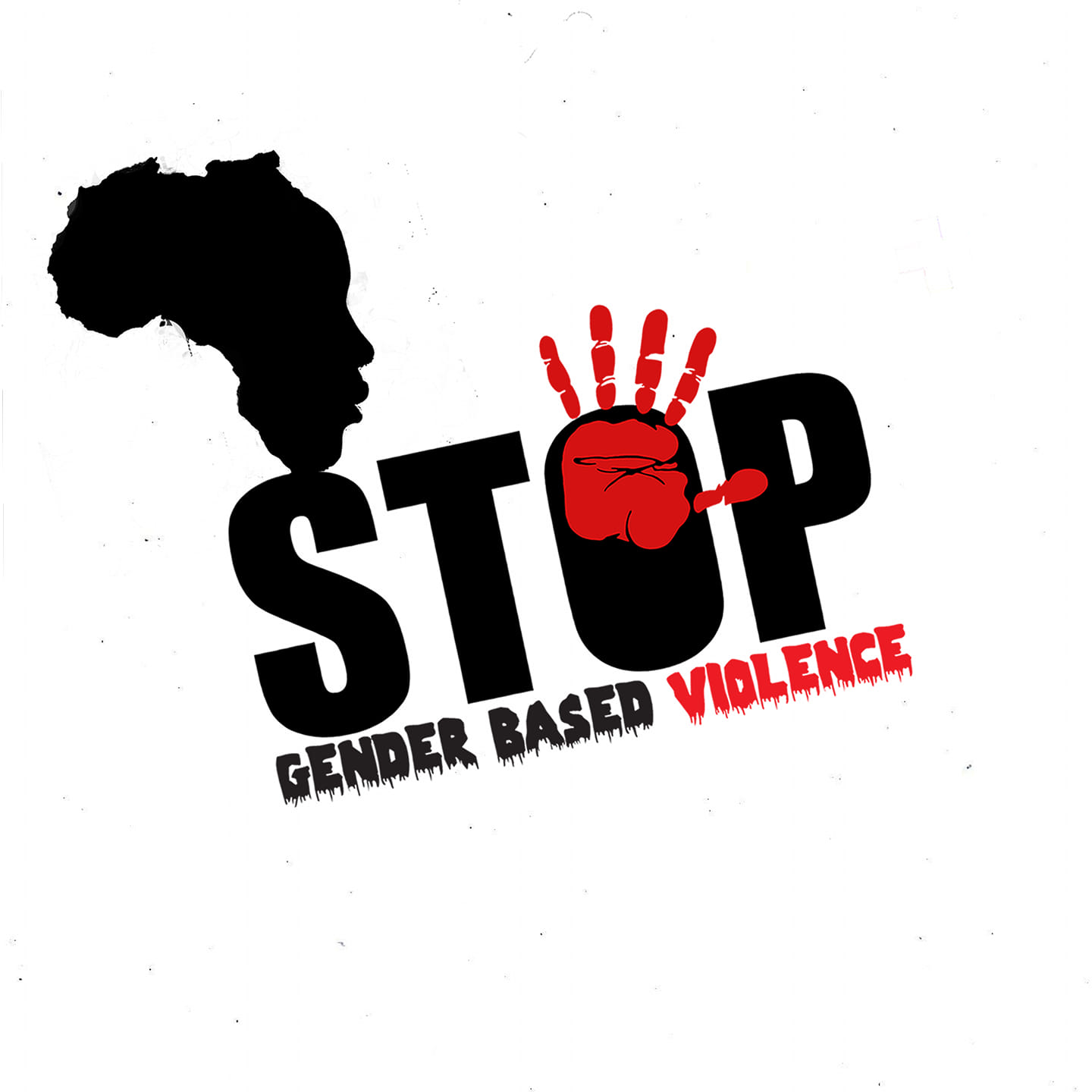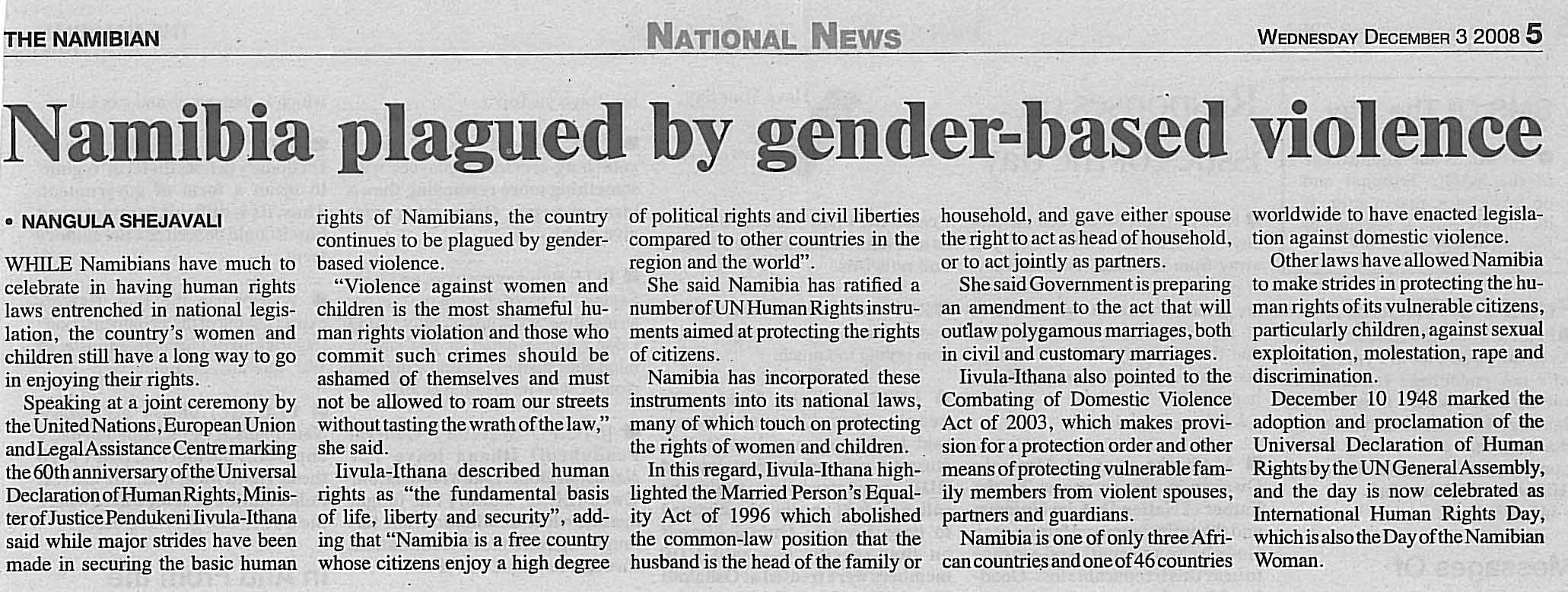
By Karabo Ngoepe, Nokunceda Magagula, Silindzelwe Nxumalo and Ncaba Ntshakala
Almost one in every three women globally has been subjected to some form of violence at least once in their lives. That translates to approximately 736 million women according to World Health Organization’s (WHO) data from 2021. This does not account for the one woman killed every 11 minutes by their partner. Countries are putting measures in place to tackle the scourge, but blood continues to flow in homes, streets and offices.
Eswatini
In recent weeks, Eswatini was in the spotlight following the killing of four women and one left critically injured. The case was number 147 in Eswatini in the past 11 months. The women were shot, allegedly by a boyfriend. Another case was one where a well-known couple on social media died after the husband shot his wife and himself leaving their son orphaned. Just last week, a boyfriend to a 19-year-old girl stabbed her in broad daylight at a bus stop waiting room in Siphocosini.
In response, decisive steps have been taken to combat gender-based violence (GBV). Various organizations, including the Royal Eswatini Police, have spearheaded initiatives and pleaded with the public to halt the perpetuation of GBV. These concerted efforts signal a recognition of the urgent need to address the issue and protect the vulnerable. The Deputy Prime Minister (DPM) Thulisile Dladla said there is a need for a new action plan in the fight against Gender-Based Violence (GBV) in the country.
The DPM said as she assumes office, her priority would be on this catastrophe of GBV that has plagued emaSwati. Dladla noted that many studies had been done on this issue to look at what were the underlying causes, but now they needed to meet all stakeholders fighting against GBV and compline an action plan.
She stated that together as the Cabinet, they could come up with something that would at least address the issue because the underlying causes had been identified. “We cannot re-invent the wheel and still go do another study which other organizations have already done like UN, SWAGGA, and the DPMs office,” she said. Gender-based violence (GBV) also poses significant challenges for the country, including placing a strain on the economy. The detrimental effects of GBV extend beyond the immediate impact on individuals and families, as it can have far-reaching consequences on society as a whole, including economic repercussions.
Zwakele Dlamini from the Royal Eswatini Police Services (REPS) on behalf of REPS Deputy Police Information & Communication Officer Phindile Vilakati expressed that GBV can lead to various economic costs, including increased healthcare expenses, loss of productivity in the workplace due to physical and emotional trauma experienced by survivors, and the overall disruption of social and economic stability.
These costs place an additional burden on the already fragile economy of Eswatini, limiting its potential for growth and development. The consequences of GBV on the economy are numerous. Ngcebo Hlophe, a teacher from Mkhuzweni High School was of the view that GBV can discourage foreign investment and tourism, as the prevalence of such cases raises concerns about the safety and security of individuals and communities. The SADC region is intensifying its fight against the scourge but the numbers keep climbing. Regionally, women find themselves in similar predicaments.

South Africa
Crime statistics released by the South African Police Services on Friday painted a picture of a country where women and children have become endangered species. Police Minister Bheki Cele said between July and September 2023, 1 514 incidents of attempted murder, involving female victims were reported. “Furthermore, females were victims in 14 401 Assault GBH incidents reported to the police during the reporting period. Children have not been spared from the brutal attacks and abuse. At least 293 children were killed between July to September 2023. In the same period, 361 incidents of attempted murder and 1 820 of Assault GBH were perpetrated against children,” he said.
South Africa also recorded 10 516 rape incidents between July and September this year. The minister said 4 726 rape incidents took place at either the home of the rape victim or the home of the perpetrator which are known to the victim, such as a family member, a friend or a neighbour. The minister said he was however pleased at the progress being made and the sentences being dished out to perpetrators. He said the arrests are what led to the reduction in the crime. “This includes the recent identification and takedown of 27 sexual predators in the country. In October, we saw the sentencing of Mario Giusti, sentenced to 6 400 years in jail after being found guilty of more than 1000 charges of child pornography,” said Cele.
Lesotho
The Kingdom of Lesotho with its population of almost 2.2 million, is also facing what has been described as a silent struggle. Statistics from the Police Child and Gender Protection Unit reveal 184 reported sexual offences and 45 assault cases against women from January to July 2022. Perhaps even more alarming is the fact that 47% of women murdered in Lesotho in 2021 became victims of intimate partner violence. Recognized as a driver of HIV in a country with a population of over 2 million, GBV poses a serious threat to Lesotho’s development and economy. The impact on the Lesotho population is not just numerical, it’s a pervasive force that affects the very fabric of the nation.
Botswana
The diamond-rich nation of Botswana boasts a scary statistic that says almost 70 per cent of the country’s women have borne the weight of GBV at least once in their lifetime. The UNPFA said the statistics in Botswana were over double the global average. Even more troubling is the stark reality that nearly 30 per cent endured violence within the past year, translating into over 200,000 women experiencing egregious rights violations. However, the country is also battling a low-case reporting problem, meaning the number could grow astronomically. Only 1.2 per cent of Batswana women reported GBV cases to the police.
This underreporting underscores the challenges in capturing the true extent of the issue. With 62% of women experiencing violence in intimate relationships and 22.4% of men perpetrating GBV, the impact on Botswana’s population is not merely statistical but indicative of a pervasive societal issue.
Namibia
Namibia, with a population approaching 2.5 million, faces the unsettling reality of GBV. Former Prime Minister Nahas Angula’s revelation of 10,478 recorded GBV cases between 2020 and 2022 underscores the gravity of the situation. The UNFPA’s disclosure of close to 700 rape cases during 2021, disproportionately affecting women and girls, adds to the alarming narrative. The organisation further found that with 6 per cent of women reporting violence during pregnancy, the pervasive nature of GBV casts a long shadow over Namibia.
The impact on Namibia’s population is not just numerical, it’s a complex interplay of social, economic, and health-related challenges. In 2015, the Global Gender Gap Index ranked Namibia 16th out of 145 countries globally. In response, the country came up with a National Plan of Action on Gender-Based Violence 2019-2023 which called for a multi-sectoral, prioritised national effort against Gender-Based Violence. The Plan focused on actions that have emerged as the most urgent, the most achievable as well as likely to have the greatest impact in combating GBV, with limited resources.
It was based on a socio-ecological model that is designed to provide a home for coordinated national action. The four action areas support either a long-term movement that targets root causes or short-term goals that will improve response systems and community safety, in general, to ensure that survivors and victims no longer feel unsafe or untrusting of protection structures. Progress has been made with Namibia now the second country in Africa making progress towards closing the gender inequality gap. The highest possible rank is one, indicating equality and the lowest zero for inequality. The UNPFA says Despite progress being made, real gender equality is yet to be realized.

Women and girls and in particular adolescent girls continue to experience gender-based violence, teenage pregnancy, and restrictive socio-cultural norms limiting the full exercise of human and women’s rights. The organisation said of particular concern was the Sexual and Gender Based Violence (SGBV) especially intimate partner violence against women and girls, sexual violence by non-partners and femicide.
The Namibia Demographic Health Survey (2013) indicated that 33 per cent of ever-married women aged 15-49 years have experienced physical, sexual, and/ or emotional violence from their partner. Thirty-two per cent (32 per cent) of adolescent girls aged 15-19 and 35 per cent of young girls aged 20-24 have experienced physical violence from a partner. During 2012-2016, the Namibian Police identified five (5) top prevalent violence reported in the country as assault grievous bodily harm (22,174 reported cases); assault common (18,054); rape (2,839); attempted murder (1,138) and murder (734).
This is exacerbated by condoning society’s attitude towards SGBV. Twenty-eight per cent (28 per cent) of women and 22 per cent (22 per cent) of men aged 15-49 justified beating as an acceptable way for a husband to discipline his wife. SGBV is deeply entrenched in the socio-cultural norms, which in turn undermine women’s decision-making power, and contribute to women and girls’ poor health outcomes, such as maternal mortality and HIV infection. Six per cent (6.0 per cent) of women reported experiencing physical violence during pregnancy, predominantly among younger women (age 15-24).
To combat the scourge, the world needs all sectors of society to join forces and take a stand. African countries are standing up to deal with the issue. A continental program targeting men around the issue of GBV, the African Men Conference hosted by the African Union will take place in South Africa from November 27 -28 as efforts continue to tackle the scourge.






